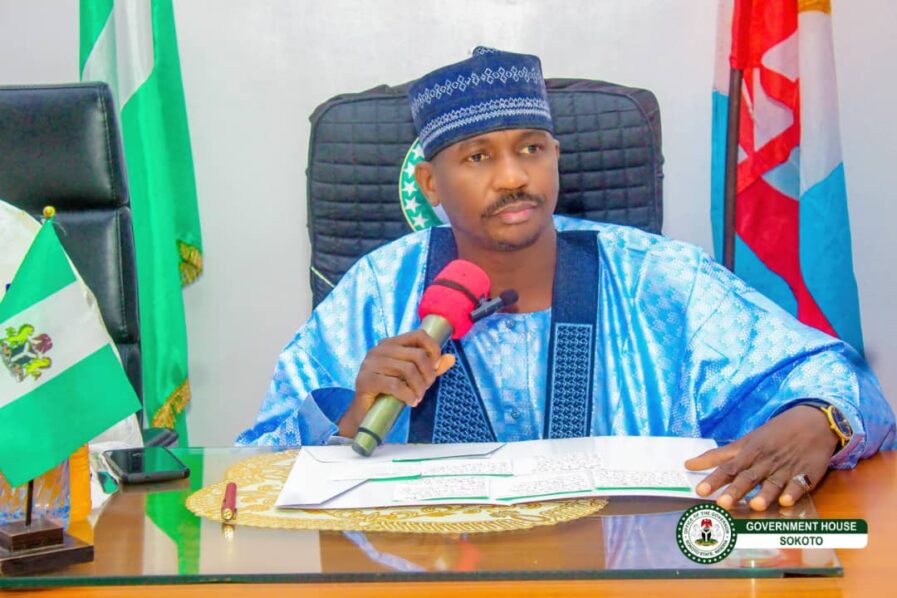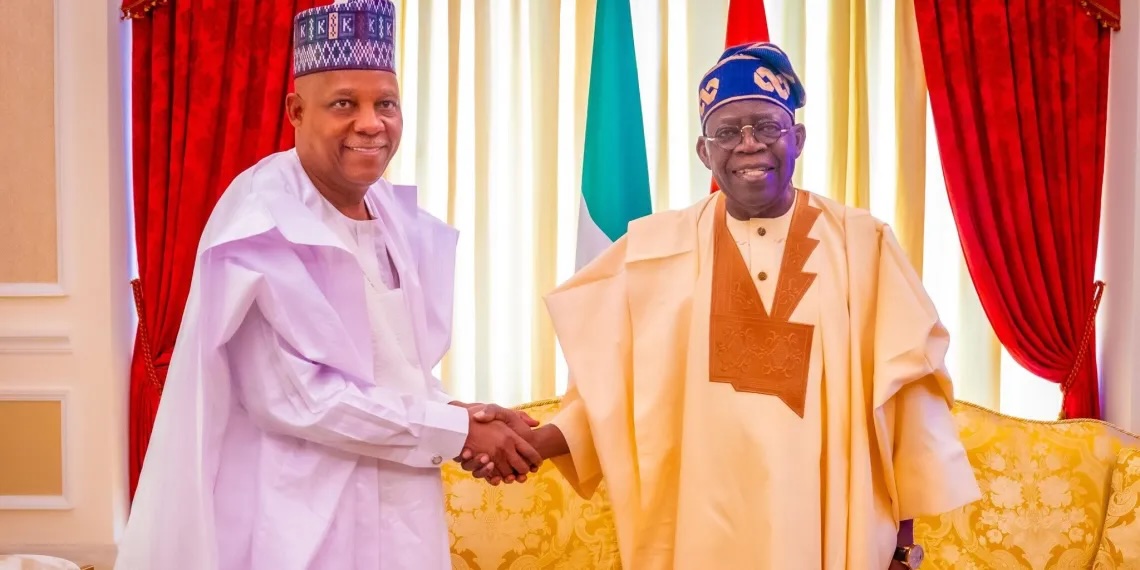
“A budget is telling your money where to go, instead of wondering where it went.” – Dave Ramsey
In the last one and half years, Dr Ahmad Aliyu Sokoto, the amiable governor of Sokoto State, has proven that the annual budget can be an effective tool to empower the good people of Sokoto State and to create the conducive environment that would enable them achieve their full potentials, unlike their experience during the Aminu Tambuwal’s administration when they never saw the benefits of budgets, because the budgets didn’t change their fortunes.
For Governor Sokoto, budget is a critical tool, and like all tools the results would be determined by the effective uses to which they are deployed towards the realisation of the laudable objectives of his 2025 budget of “Transformation and Infrastructural Sustainability”; especially the provision of roads, housing, healthcare facilities, construction of schools and other critical infrastructure for the people.
The governor, being a financial expert, equally understands that if his budget fails to meet the yearnings of the people of Sokoto State, and address fundamental issues of governance, that it is a colossal failure and a betrayal of the mandate willingly entrusted to him by the people.
Operating from this premise, the governor has despite the backlog of crises that he inherited on assumption of office in 2023, has trudged on by first restoring hope of a despondent people in the capacity of government to deliver services, by actually doing so. He is, without doubt, on the right track to fix the broken state and has every right to beat his chest because of his solid accomplishments from May 29, 2023 to date as contained in his report on the performance of the 2024 budget.
Like budget estimates, budget performance review is equally critical. So how did Governor Sokoto’s 2024 budget of N270.1 billion with a N97.8 billion recurrent expenditure and N172.2 billion in capital expenditure perform? It is important to stress that, being his first budget, it focused on the Nine-Point agenda on which he had campaigned.
Though not yet uhuru, the signs of a better future for the people of Sokoto State are obvious due to a leadership that is committed to their welfare and security by ensuring that their interests are at the centre of his budget implementation, which is what government is all about.
The objectives of the 2024 budget were a commitment to promote opportunities, accelerate human capital development, reduce inequality and the prioritisation of capital spending on key sectors like education, and infrastructure.
Sokoto clearly shares the same philosophy like President Joe Biden of letting his budgets speak for him. According to President Joe Biden, “Don’t tell me what you value, show me your budget and I will tell you what you value”, which is exactly what Sokoto has done with the 2024 and 2025 budgets.
Considering the security challenges confronting Sokoto State and indeed the North-West zone, it is not surprising that improving the security situation along the eastern border with Zamfara State, was and remains topmost in the government agenda. The establishment of the Sokoto State Community Corps, the collaboration with the security agencies, the construction of military bases, procurement of over 130 patrol vehicles for the security agencies to enhance operations, improved allowances and logistics support showed a government that is more than alive to its responsibility, even though security enforcement is not the constitutional responsibility of state governments. The governor has also provided logistics support for the Nigeria Air Force which hastened the operationalisation of the Air force unit in Sokoto.
Sokoto’s commitment to defeating the terrorists who have made the life of his citizens hellish, is unwavering and total, contrary to the allegations of inaction by an opposition whose inaction escalated the situation in first place, and made Sokoto State a nightmare.
The aggressive implementation of the Urban Renewal Programme with the various components, in the year under review, which includes the construction of over 30 asphalt roads, expansion of potable water supply, installation of solar powered street lights and efficient refuse collection. These have given the Seat of the Caliphate a new look, while the erection of wire fence along major roads have helped reduce accidents and save lives.
The government, in its aggressive drive to transform the rural areas where a vast majority of its citizens live, constructed feeder roads to help in the easy movement of people, goods and services and installed solar powered streetlights in the local government headquarters, as part of the efforts to combat security challenges and drive commerce.
Sokoto has, by words and deeds, shown that the provision of affordable housing is dear to his heart and same with the provision and expansion of water supply to the entire state. To address the housing shortage, the government has constructed 1,0000 houses in the Gidan Salanke and Wajake, and purchased another 137 housing units from the Federal Government in the Kwannawa area of the capital.
In 2023, when the governor came on board, Sokoto and its environs were not only suffering from acute water shortage, but the state water board, due to funding challenges, was tragically pumping untreated water to public taps. Thankfully, that has become history. And to further ensure that other parts of the state enjoy water supply, the government has awarded the contract for the completion of four major water schemes in Tamaje, Mana, Old Airport and Rugar Liman areas of the capital. It is interesting to note that these projects were initiated by former Governor Aliyu Magatakarda Wamakko, but totally ignored by Tambuwal. The projects are at various stages of completion.
Clearly, Governor Sokoto’s policies reflect what the Sokoto State people want. Another area where Sokoto has shown his humanity is in the settlement of the accumulated gratuity of over N15 billion from the Aminu Tambuwal administration, which he has frontally addressed with the payment of N500 million monthly to settle the backlog, while setting aside another N300 million monthly to take care of those retiring during his tenure.
In the words of the governor: ”I have set aside N300 million naira monthly to pay those retiring during my tenure so that by the time we would have completed our tenure no retiree would be left unpaid”, unlike Tambuwal who failed to pay the legitimate entitlements of retiring workers throughout his eight years in office.
Also very impactful is Sokoto’s State Social Protection Policy, that addresses the needs of the poor and vulnerable. Under the various social intervention programmes the extremely poor have been placed on a monthly allowance of N10,000, increased from N6,500, while some 9,000 physically disabled persons are to be provided with grants. In his sustained war on poverty reduction, thousands of youths have also been trained in various skills under the Community Development Department of the Ministry of Local Government and Chieftaincy Affairs.
In Sokoto’s 9-Point Agenda, religion occupies a proud No 2 position. This should not be a surprise to anyone that understands the people who proudly address their state as the Seat of the Caliphate. After all, governance is about doing what the people want. The governor’s huge investment in the promotion of Islamic affairs, the construction and renovation of mosques, the provision of boreholes, praying carpets as well as the installation of solar powers, have all resonated well with the people by making worship more comfortable for them. So also is the re-introduction of monthly funding of Juma’at Mosques and a better trained equipped, trained Hisbah (Islamic police) to address the alarming morale decadence and social vices in the society.
The government has also positively reacted to the adverse impact of the removal of the oil subsidy on the lives of the people by taking several steps to ameliorate the situation. First, the government purchased 110 mass transit buses and cars for intra and intercity services. It also acquired 1,000 motorcycles and 500 tricycles which it is reselling to unemployed youths at a highly subsidised rates.
In the period under review, it also purchased 280 trucks of rice valued at over N14 billion, which is being resold at a subsidised rate in the 244 political wards of the state. Thankfully, it is not a one-off programme.
The governor’s high premium on education is obvious from the re-accreditation of several courses in its tertiary institutions and the massive construction of school buildings, the renovation of dilapidated buildings, the provision of furniture, and instructional materials, the prompt payment of examination fees for the students writing the West African Examinations Council (WAEC) and National Examinations Council (NECO) examinations, and the payment of outstanding scholarships for students undergoing various degree programmes.
Another area the governor has done well is in the agricultural sector, which is a major employer of labour, aside the vital issue of food security. Landmark achievements of the governments in agriculture include the rehabilitation of the Lugu and Kware dams for dry season farming. The government also distributed fertilizer, pesticides, farm implements and seedlings to farmers in other to increase food production.
In the year under review, power received the attention of the government because of its desire to revive the industrial sector which has been adversely affected by the energy crisis. The government has awarded the contract for the completion of the Independent Power Project (IPP) which has reached 80 per cent completion, and the reconnection of eight local government areas that had been without power since the regime of Tambuwal.
Again, budgets are about hard choices, and thankfully for Sokoto State people, the governor, in 2024, decisively put his money where his heart and mouth are, with a budget that was realistic and clear in what it wanted to achieve, which it has achieved with its disciplined implementation.
The 2025 budget of “Transformation and Infrastructural Sustainability” with a pocket size of N526,882,142,484.39, would without doubt, consolidate on the achievements of the 2024 budget. The Sokoto State budget has a recurrent expenditure of N176,295,602,130.14 and a whopping N349,386,540,354.25 for capital expenditure, a 34:66 per cent recurrent to capital ratio.
Very impressive is the governor’s commitment from 2024 to progressively implement budgets that focus on the socio-economic development of his people. The 2023 budget drawn up by Tambuwal did not reflect the governor’s priorities.
The 2025 budget, like every good budget, has something for every Sokoto State citizen, because of the considerable input from robust town hall engagements by almost everyone whose life will be impacted by the budget.
Towards achieving the objectives, the state proposes to continue its investment in education, health, infrastructure and on the Economic and Social sectors, all in the bid to jumpstart the economy.
Sokoto State would most certainly witness massive economic growth with the largest ever capital investment in the history of the state. The workers and pensioners are equally guaranteed timely payment of their wages, pensions and gratuity because the governor has made the necessary provisions for the new minimum wage in the budget.
In spite of the achievements of the last year, the governor has consistently shown that it is not yet uhuru. He continues to place a premium on the key sectors that are the principal components of human capital development, and the huge investments in critical infrastructure for a state that is keen on changing its narrative as a backward economy to one of economic dynamism. The ultimate goal is create jobs and promote the well-being of the citizens of the state.
The clear and unequivocal message by Sokoto to the good people of Sokoto State and indeed Nigerians is “am not in the mood to slow down” in the execution of laudable programmes and projects that have direct bearing on the lives of the people. His mood reflects the story of someone who understands that he must hasten his paces, because he does not have the luxury of time.
The accomplishments of the last one year could not have been possible without the tremendous support of Sokoto State citizens, despite the mischief of the defeated opposition. Having seen the difference, the people should continue to support the governor as he seeks to consolidate on what has been achieved, and do more in the years to come, inshallahu.
Ado wrote from Kaduna.






